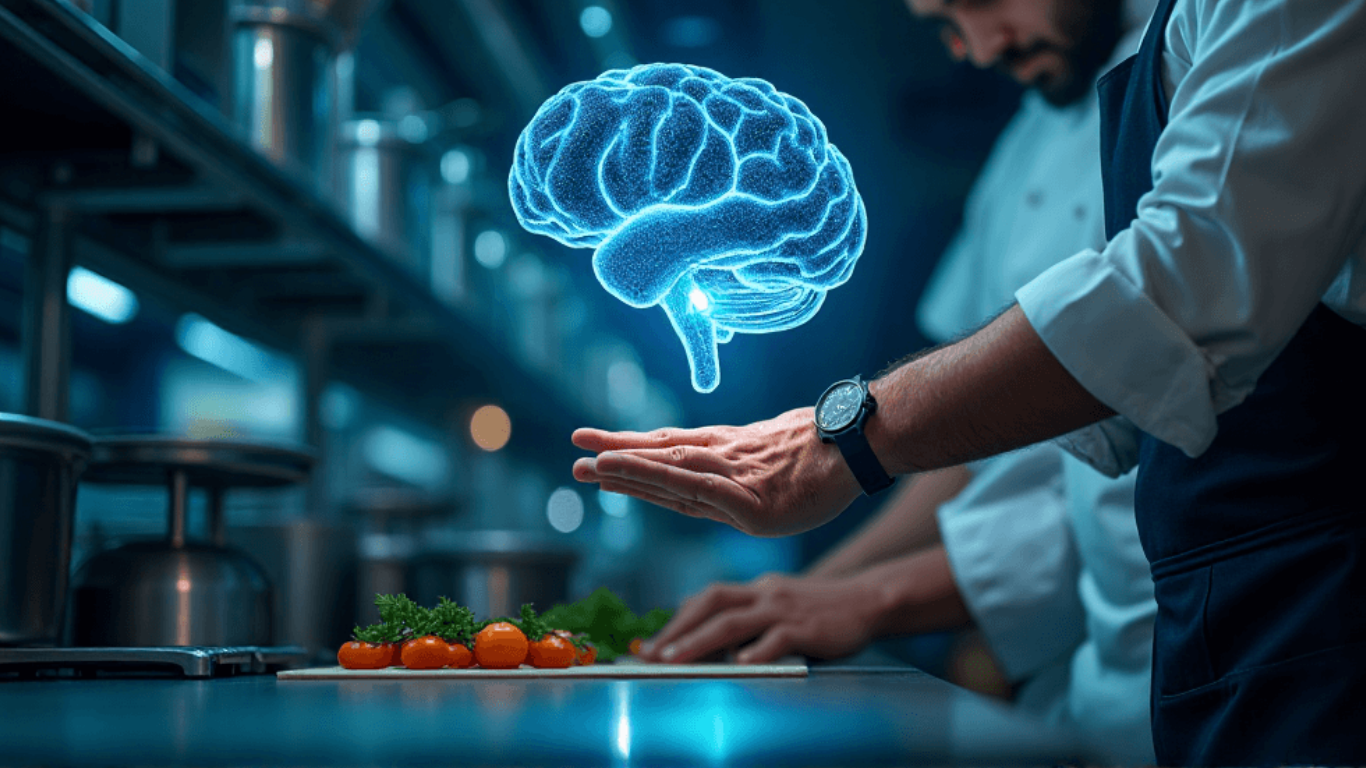
The Impact of Artificial Intelligence on the HORECA Industry and the Advantages for Chefs
Artificial Intelligence and the Future of the HORECA Industry
Artificial Intelligence (AI) is rapidly becoming a game-changer for the global HORECA sector (Hotels, Restaurants, Catering). While technology in hospitality is nothing new, the latest generation of AI tools offers a level of efficiency, precision, and personalization that was unimaginable a decade ago. However, with innovation comes disruption – and the way businesses adapt will determine whether AI is a competitive advantage or a missed opportunity.
How AI Will Help the HORECA Industry

1. Automating Repetitive and Time-Consuming Tasks
AI can take over routine processes that often slow down staff and increase operational costs:
Smart ordering systems – voice-activated assistants, multilingual chatbots, and self-service kiosks that reduce waiting times and human error.
Automated inventory control – systems that track ingredient usage in real time, forecast shortages, and place supplier orders automatically.
Seamless transactions – AI-powered payment systems enabling contactless checkout, dynamic pricing, and split billing without manual input.
Example: McDonald’s has been testing AI-driven drive-thru ordering in the US, with voice recognition handling complex, multi-item orders more quickly than human staff.

2. Predictive Analysis and Customer Personalization
AI thrives on data – and in hospitality, data means understanding customers:
Analysing purchase history and feedback to suggest tailored menu options.
Anticipating peak dining hours to optimize staffing and reduce food waste.
Offering loyalty program perks automatically based on guest behavior.
Example: Starbucks uses its “Deep Brew” AI to personalize marketing offers for millions of customers, increasing engagement and repeat visits.

3. Enhanced Quality Control and Food Safety
Safety and consistency are non-negotiable in HORECA. AI solutions now make it easier to maintain high standards:
Cameras and sensors monitor kitchen hygiene, track whether staff wash hands, and ensure compliance with recipes.
Real-time detection of temperature deviations in fridges and ovens to prevent food spoilage.
Gas leak detection and odor analysis to identify potential hazards before they become critical.

4. Creative Menu Development and Cost Optimization
AI can assist chefs in innovation without compromising efficiency:
Generating recipe ideas by analysing global food trends, seasonal availability, and nutritional requirements.
Suggesting substitutions to reduce costs or meet dietary restrictions.
Balancing menu profitability by identifying high-margin dishes that resonate with customers.
Example: IBM’s “Chef Watson” was an early AI experiment that suggested unusual but delicious flavor pairings, inspiring chefs to experiment beyond traditional combinations.
Advantages for Chefs in the AI Era
More focus on creativity – with administrative and repetitive tasks handled by technology, chefs can dedicate more time to flavor, presentation, and culinary innovation.
Access to advanced tools – recipe simulation, waste reduction analytics, and AI-assisted plating design.
Data-driven decision-making – knowing exactly which dishes customers love most and which ones underperform.
Reduced stress and burnout – better workload planning and real-time kitchen coordination mean fewer last-minute crises.

Risks and Challenges
Job displacement in repetitive roles – AI is likely to replace cashiers, order-takers, and some front-desk staff, though creative kitchen roles will remain in demand.
Technology dependency – in case of system failure, teams must be ready to operate manually.
Loss of human touch – an over-automated experience may feel impersonal and robotic, especially in high-end hospitality.
Data privacy concerns – with so much customer information processed, businesses must ensure compliance with privacy regulations.
The Future: Human–AI Collaboration, Not Competition

The hospitality industry has always been about creating memorable experiences – something machines alone cannot fully replicate. AI will become an invisible but essential assistant, working behind the scenes to ensure speed, accuracy, and personalization.
The winners in this new era will be:
Businesses that integrate AI without losing the warmth of human service.
Chefs and managers who embrace technology as a creative partner rather than a threat.
Brands that balance efficiency with authenticity.
In short: AI will not replace hospitality – but hospitality professionals who use AI effectively will replace those who don’t.



